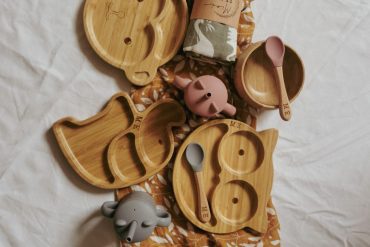On my first day as a Latte Daddy I wasn’t as daunted as I should have been. I was thrown into the deep end when modern nappy technology failed me and I had to figure out how to prevent all the poo up Harriet’s back from going into her hair while I undressed her. An unplanned bath meant there was no way that we would make it to the library for rhyme time. My schedule would need to become much more flexible than I was used to. When it came to communication, instead of trying to interpret a poorly worded email from a senior manager, I had to learn to read signs from a baby yet to speak her first word. My grandmother recently confessed that she is still learning about parenting. I believe her.
At the end of those first few days I collapsed in front of the TV, physically exhausted from the small but constant activity that office work had not prepared me for. And then there was the emotional toll. Somehow Harriet’s crying seemed to draw energy from me and I found myself easily drawn to comfort food. Maybe a Butter Chicken Daddy was more accurate. Through my mistakes I would learn better methods so that she was happier more often. It took a lot of practice to plan and act with not one, but two people in mind. Those first few weeks were far more difficult than I had anticipated and I came to fully appreciate the way my wife had managed at home five days a week until now.
As Harriet grew older and I became more confident, we ventured on to structured activities. Firstly, to rhyme time at the library, and when she could walk, we transitioned to play groups. Unlike in Sweden, it was rare to see another father among these groups. Out of 20 to 30 mothers and grandparents, there was typically one other father at most. The play groups became an important outlet because they provided a safe place for Harriet to play as well as social engagement for me. I came to see the other mothers there as my colleagues, it felt like that kind of arrangement; a few of them became my close friends. I never once felt that I was not accepted, in fact quite the opposite, with many women intrigued about our arrangement. Having said this I never completely integrated into the group. Social activities were semi-regularly organised, but instead of being invited to join the mothers on a night out, I was asked if I’d like to have a drink with the husbands, none of whom I knew. Meanwhile, Wendy, who was now rarely able to attend play group, was always invited to the ladies’ night out.
I had seen how hard it was for many of the mothers being primary carer and running everything at home. Their career focused husbands were rarely around. While they all had the big SUV and the family sized house with the backyard, they were worn out. In that fatigued state they often succumbed to the easy option, giving their child a sweet treat or pacifying them with their phone – not having the energy to care about the negative consequences. It’s easy to judge from afar, but in that state of mind you will do anything to make it through the next hour, let alone a whole day. I was saddened when one of the mothers told me her kids felt unfamiliar with their father when he came home after a long absence for work.
Those first few weeks were far more difficult than I had anticipated and I came to fully appreciate the way my wife had managed at home five days a week until now.
We were overjoyed that our close friends had their first child when we did. When the kids arrived, however, the husbands were making major career advances, resulting in long working hours, a significant amount of local and international travel or even having to move interstate. Because I had let go of that part of my life, I found it increasingly difficult to interact with my male friends. Their career was such a huge part of their lives, even their identity, and I just didn’t have the same problems as them. Catching up became a little forced at times, somewhat like networking where it’s effortful to maintain interest in the topic of conversation. I ended up deepening my relationships with my female friends, not because they were women, but because we had more in common.
Meanwhile, my friends who did not yet have children were a reminder of what I had sacrificed. Although, truly, there is little that I’ve lost that I want back. We hardly drink at all now, and I don’t miss it. I have also grown to enjoy a lovingly prepared, but unpretentious, meal out: one featuring herbs, not micro-herbs, and one where I can relax, even when one of the dinner guests is throwing food on the floor. We discovered that if you go to a restaurant at 5pm, you often get a private waiter and chef.
Our reduced income means that we don’t have the big car or house, but we also don’t spend long hours at a desk. We spend an incredible amount of time outside, moving and appreciating nature. Often, we literally stop to smell the roses, with Harriet ensuring that Mummy and Daddy take a sniff too. One day we’ll travel again, when Harriet is old enough to appreciate it, but we don’t need the novelty that international travel brings; Harriet does that for us every day. I don’t need to escape my life, because I wouldn’t change it in any way, other than to maybe add one more member to the family.
Jeremy Majid writes the blog Compounding Time which explores how we can best spend our time, now and into the future. He is also the co-founder of the publishing house Leabrook Press, author of the book Graduates’ Guide to Work, and the book and cover designer for In Situ and Float. After completing his tertiary education in mechanical engineering and commerce, Jeremy spent a decade in supply chain roles across three diverse industries before deciding to refocus. He is now a father, coach, publisher and writer. He lives in Adelaide, Australia, with his wife and young daughter.










